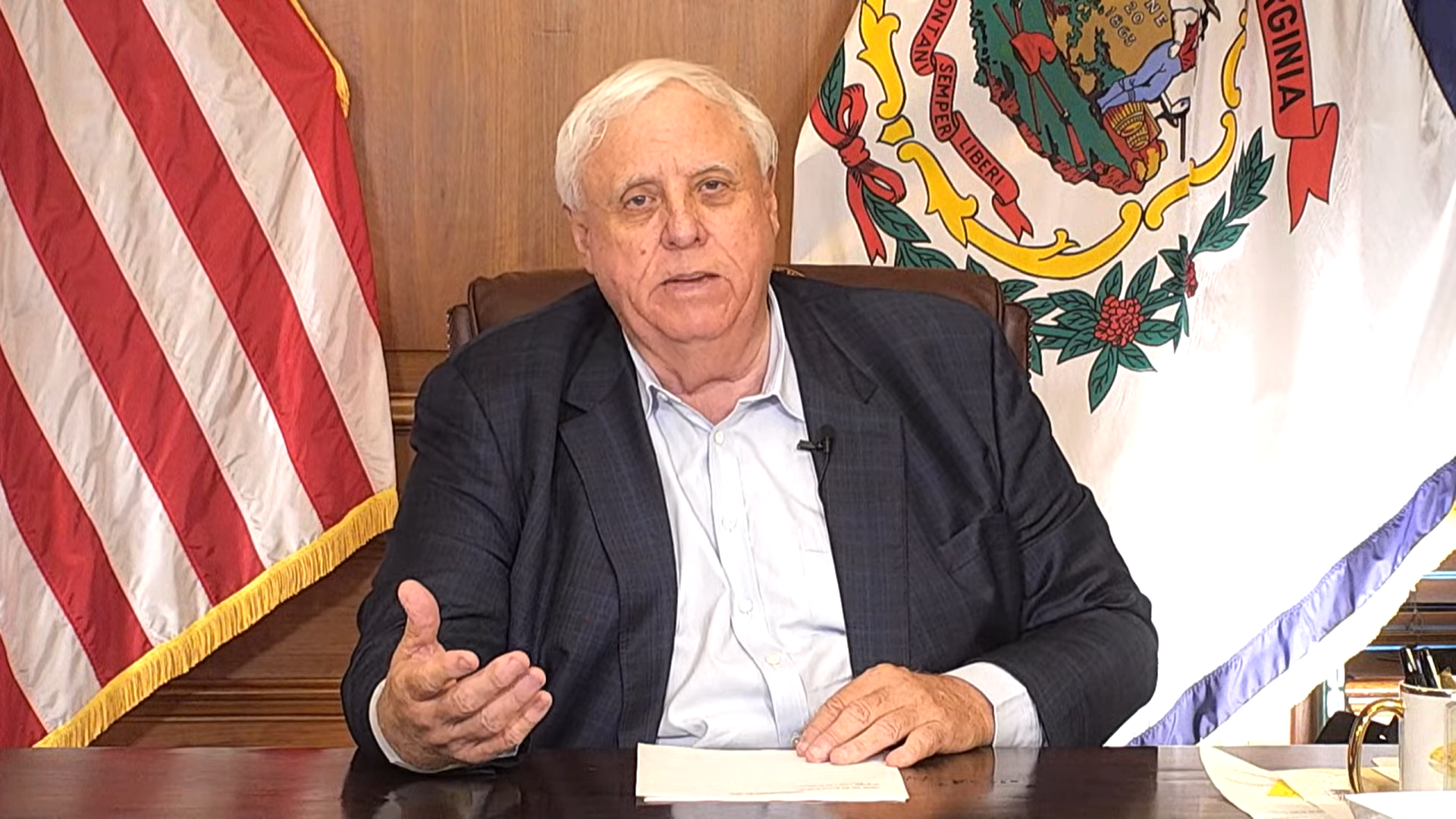The West Virginia Legislature passed 279 bills during the 2024 regular session.
But 176 of those bills — about 63 percent of them — still await approval from Gov. Jim Justice.
Wednesday marks the deadline for Justice to sign bills into law or veto them using his authority as governor. By Thursday, any remaining bills will automatically become law.
It’s not uncommon for a governor to sign several bills close to the deadline. But this year, Justice accredited delays to drawn-out discussions, and budgetary issues that arose days before the session ended.
“In all honesty, there’s an awful lot of these bills that got down to us really late,” Justice said during a virtual press briefing Tuesday. “It takes time for our folks to get through all these bills.”
Justice added that the Legislature “didn’t really have a budget.” Lawmakers passed a budget below $5 billion this year, which was shy of the $5.265 billion Justice proposed in January.
In part, that’s because some lawmakers worried about overspending. Their concerns arose from news that the United States Department of Education could reclaim $465 million in COVID-19 funds received by the state.
Justice previously said that he would call the Legislature back for a special session before May 14 in response to these budget concerns.
In the meantime, he said he will continue working through the legislation before him.
One piece of legislation still pending is Senate Bill 453, which would require increased transparency from pharmacy benefit managers, who have oversight on drug costs and insurance reimbursement. Justice said during the press briefing that he plans to sign the bill.
Another is House Joint Resolution 21, which would add a question to voters’ ballots in the 2024 general election.
If approved by voters, the resolution would add a line to the state’s constitution expressing that non-citizens of the U.S. cannot “vote at any election held within this state.”
Non-citizens are already ineligible to vote in federal elections, which led Del. Mike Pushkin, D-Kanawha, to describe the resolution as a “time-wasting, do-nothing” policy in February.
Justice, however, said he wholeheartedly supports the resolution.
“I’m a real believer, and it’s the law. I mean, for crying out loud, you don’t have any right to vote whatsoever if you’re here illegally,” he said.
But Justice was less forthcoming on another, more controversial piece of legislation: House Bill 5105.
If passed, the bill would grant vaccine exemptions to most students in private, parochial or virtual public schools across the state.
Students are currently required to receive vaccines for several infectious diseases, like polio and measles, regardless of the school they attend.
Many health professionals have expressed grave concerns over the health risks of increasing vaccine exemptions. But the lawmakers behind the bill describe it as a matter of personal choice and religious freedom.
Justice declined to share his stance on the bill during Tuesday’s press briefing.
“I’m very, very close to reaching a decision. I understand both sides,” he said.
In addition to signing the bill into law, Justice could also take no action — letting it pass automatically — or veto the bill.
So far this year, Justice has only vetoed one bill, which would have provided $2 million for neuroscience research on Alzheimer’s Disease and substance use disorders at West Virginia University.
“If you just give me ‘til tomorrow,” Justice said. “We’re still reviewing certain things and everything, but you’ll definitely hear from me tomorrow.”
